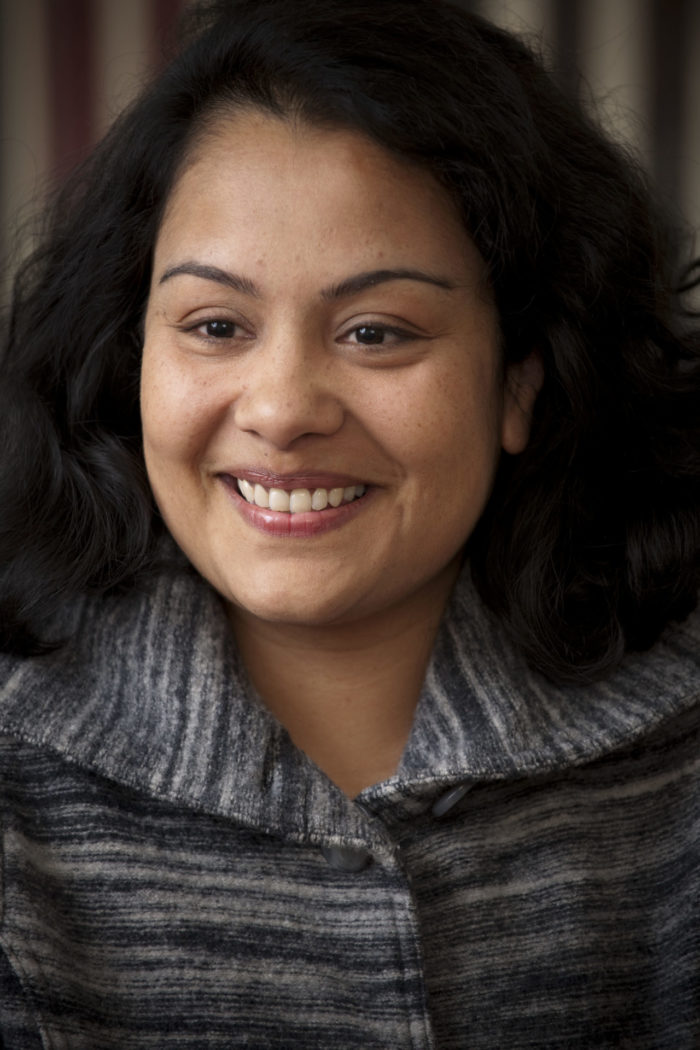Supervisors
Maria Beger
University Academic Fellow in Conservation Science, School of Biology

About me: I am a University Academic Fellow based in the School of Biology. I works in decision science for the management and conservation of natural resources, with focus on tropical marine systems. I am also interested in coral reef ecology, marine spatial planning, climate change, and in interdisciplinary research. My projects currently focus on understanding and managing a) Indonesia's coral reef biodiversity; b) tropicalisation of subtropical and temperate reefs; and c) coral demography.
Interested in supervising: I am interested in projects that interface marine biodiversity conservation with climate, languages (e.g. threatened species vs threatened languages), cultural/ cultural values, law, and or economy. Anything really, marine conservation is a highly complex issue that can only win from interdisciplinary thinking.
Get in touch: m.beger@leeds.ac.uk
Ellen Clarke
Lecturer in Philosophy, School of Philosophy, Religion and History of Science
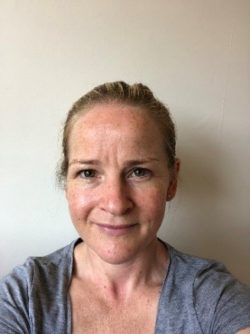
About me: I specialise in Philosophy of biology and especially evolutionary theory. My main research focus is on unitisation problems – situations where it is difficult to agree on the nature and boundaries of the main actors or concepts in a theory or model. One example is the organism – an important unit in all branches of biology, but one which lacks a common definition. My work explores this unit in the context of evolutionary optimality models and major transitions. I am also interested in how units are picked out in ecology and in conservation, and what difference changes of definition make to things like conservation outcomes.
Interested in supervising: I could supervise projects in conservation ontology – which are concerned with the meanings of key concepts in conservation theory, and how those meanings impact the results of conservation work. For example, the concepts ‘species’, ‘nature’, ‘ecosystem’ and ‘organism’ are all much contested. But without them, conservation goals would be difficult to articulate and progress impossible to measure. This makes it important that the consequences of adopting particular meanings are fully thought through.
Get in touch: e.clarke@leeds.ac.uk
Ipek Demir
Professor, School of Sociology and Social Policy
About me: My work sits at the intersections of the fields of diaspora studies, ethno-politics, race and identity, Global South, indigeneity and social and critical thought. I also have a keen interest in epistemology, politics of knowledge, risk, translation studies and incommensurability.
Interested in supervising: I would be interested in supervising students on topics encompassing race, ethnicity or indigeneity, and on the loss, erasure and recovery of culture, language, identity, knowledge including in relation to migration and diasporic experience. I am also keen to supervise students on epistemic erasure, extinction, risk, and sociology of ignorance.
Get in touch: i.demir@leeds.ac.uk
Alexander Dunhill
Lecturer in Palaeobiology, School of Earth and Environment

About me: My research focuses on large scale macroevolutionary and macroecological processes through deep time. I am particularly interested in the causes, selectivity and long-term recovery dynamics of mass extinction events and how these biotic crises relate to current and future biodiversity declines.
Interested in supervising:I am keen to hear from students who wish to work at the interface between life sciences, social sciences and humanities to tackle questions such as how comparable are past pre-human extinction events to modern/future human-driven extinctions.
Get in touch: a.dunhill@leeds.ac.uk
Alison Dunn
Professor of Ecology, School of Biology
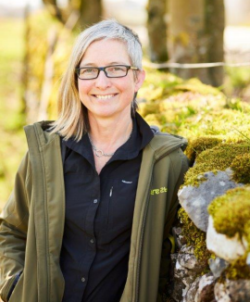
About me: My research includes: the ecology of wildlife diseases; the impact of invasive alien species; biosecurity and behavioural change to slow the spread of Invasive Alien Species and of parasitic diseases; awareness of and attitudes to Invasive Species and parasites.
Interested in supervising: I welcome projects in/across the following areas: cultural and biological perspectives on the parasite; species on the move- expansion, invasions, re-introductions, extinctions; environmental conservation and inclusivity.
Get in touch: a.dunn@leeds.ac.uk
Adrian Gallagher
Professor in International Security, School of Politics and International Studies

About me: I am an Associate Professor in International Relations specialising in the study of mass atrocity prevention under the Responsibility to Protect. I am also Co-Director of the European Centre for the Responsibility to Protect and Editor of Global Responsibility to Protect.
Interested in supervising: Genocide: studies on physical and non-physical forms of destruction toward groups. At a theoretical level, engagement with Raphael Lemkin's original understanding of genocide as a multi-dimensional process and, at an empirical level, focus on contemporary cases such as Indigenous peoples in Brazil or Uighurs in China.
Get in touch: a.gallagher@leeds.ac.uk
Simon Goodman
Lecturer, School of Biology
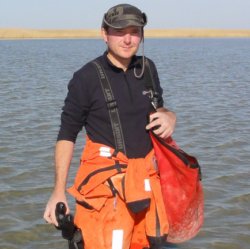
About me: I am an ecologist and evolutionary biologist. I undertook a PhD in molecular ecology at the University of Cambridge and held post-doctoral fellowships at the University of Edinburgh and Zoological Society of London, before joining the University of Leeds in 2004. My research spans a range of conservation orientated topics and has had significant international policy impact, notably through work on invasive disease risks to Galapagos fauna, and threats to endangered seal species.
Interested in supervising: Potential project supervision areas relate to topics at the interface between ecology, conservation and the social aspects of policy development, including mitigation strategies against the illegal wildlife trade, impact of climate change and industrial development in the arctic on marine mammals, and strategies to promote conservation of parasite biodiversity.
Get in touch: s.j.goodman@leeds.ac.uk
Christopher Hassall
Associate Professor of Animal Biology, School of Biology
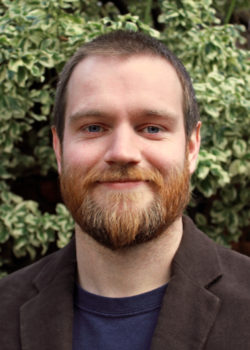
About me: I completed my BSc in Zoology and my PhD in climate change ecology at the University of Liverpool, moved to Canada for two research fellowships, and then returned to the UK where I am now Associate Professor of Animal Biology at the University of Leeds. I am interested generally in the patterns and processes of global change and incorporate natural, physical and social science approaches into my research. I enjoy collaborations and conversations with colleagues from outside of my own field and believe strongly that real world solutions exist in the spaces between disciplines.
Interested in supervising: My interests lie in understanding the relationship between people and nature. This may involve the ways in which human activities impact upon natural systems or the pathways through which the natural world influences human psychology, health, and attitudes. I am primarily quantitative in approach and use datasets from a range of fields (ecology, radar, surveys, citizen science) to explore ecological, evolutionary, and environmental phenomena.
Get in touch: c.hassall@leeds.ac.uk
George Holmes
Professor of Conservation and Society, School of Earth and Environment
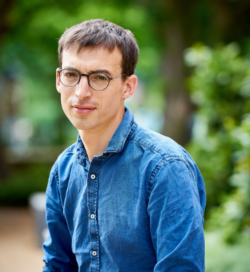
About me: I’m a conservation social scientist, researching the politics of conservation. This involves looking at both the values, beliefs and actions of conservationists, and the interactions between conservationists and the communities who live in and around conservation projects, particularly protected areas. I’m very keen on interdisciplinary working, particularly around emerging themes in conservation such as the Anthropocene and rewilding.
Interested in supervising: I’m interested in supervising projects relating to my research interests. I’m particularly keen on projects exploring the novel frontiers of conservation, particularly how we might need to rethink conservation in the 21st century, and the ethical, political and practical aspects of this. This includes looking at novel or unconventional forms of conservation, such as rewilding or private protected areas, or exploring the challenges that come from new concepts in conservation, such as novel ecosystems.
Get in touch: g.holmes@leeds.ac.uk
Graham Huggan
Professor, School of English
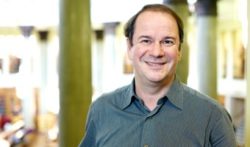
About me: My research interests straddle three fields: postcolonial studies, tourism studies and environmental humanities. Much of my recent work is on extinction-related topics, e.g. in the area of marine conservation (cetaceans) and the interface between celebrity, capitalism and conservation, in Africa and elsewhere.
Interested in supervising: I would welcome projects in and/or across the following subject areas: extinction and colonial/imperial history; extinction and wildlife conservation; cultural representations of endangered species; extinction and climate change.
Get in touch: g.d.m.huggan@leeds.ac.uk
Jon Lovett
Chair in Global Challenges, School of Geography
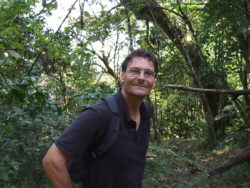
About me: I am a Chair of Global Challenges in the School of Geography and co-director with Janet Watson of the Centre for Endangered Languages, Cultures and Ecosystems. I have a background in ecology and my research focuses on the institutional economics of natural resource management. My current projects are on the impacts of climate change on biodiversity and interdisciplinary approaches to renewable energy.
Interested in supervising: I am particularly interested in projects that combine ecology, institutional economics and language to develop practical pathways to build socio-ecological resilience and prevent anthropogenically induced extinctions.
Get in touch: j.lovett@leeds.ac.uk
Amrita Mukherjee
Lecturer in International Law, School of Law
About Me: My research is mainly in the fields of public international law and international human rights, including: the prohibition of torture and the role of UN monitoring human rights bodies; the rights to land of indigenous peoples; subaltern studies and postcolonial theories and decolonising international law.
Interested in Supervising: I would be interested in projects that include decolonising perspectives in international law and human rights. Also, in indigenous perspectives on the environment, human rights and climate.
Get in touch: a.mukherjee@leeds.ac.uk
Diane Nelson
Senior Lecturer, School of Languages, Cultures and Societies
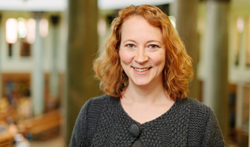
About me: In my teaching and research, I view language as a cultural and biological feature of the human species, one which has its own Natural History. I am interested in how we can use tools and analogies from evolutionary biology and cultural evolution to understand the origins of the capacity for language from our primate ancestors through the emergence of fully complex language in anatomically modern humans, and from its diversification into thousands of languages to the mass endangerment and extinction of languages we are witnessing today. I am also interested in exploring the links between biodiversity, cultural diversity and language diversity, and the processes of safeguarding, documenting and revitalising endangered and Indigenous languages and cultures, particularly as part of a process of decolonisation
Interested in supervising: I would be interested in supervising projects on language endangerment, diversity, extinction and revitalisation within an interdisciplinary framework. This includes projects which view language through the lens of evolutionary biology, cultural or linguistic evolution, ecology/biodiversity, decolonisation and/or climate activism.
Get in touch: d.c.nelson@leeds.ac.uk
Thea Pitman
Professor of Latin American Studies, School of Languages, Cultures and Societies
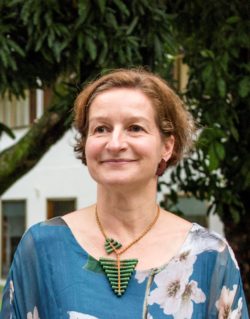
About me: I am a Professor of Latin American Studies, specialising in cultural studies, especially new media and digital cultural production, as well as Indigenous and decolonial studies. Among my major publications are the monographs Mexican Travel Writing (Lang, 2009) and Latin American Identity in Online Cultural Production (Routledge, 2013) and my forthcoming book is entitled Decolonising the Museum: The Curation of Indigenous Contemporary Art in Brazil (Tamesis, 2021).
Interested in supervising: In the field of extinction studies, I would be interested in supervising students of any discipline whose research topic intersects with Latin America in some way, and/or with Indigenous studies, questions of cultural genocide or epistemicide, as well as issues of Indigenous language endangerment and revitalisation. I am also interested in projects that employ digital humanities methodologies and/or practice-based projects working with digital/immersive technologies, as well as any project that proposes to take a decolonial approach to extinction studies.
Get in touch: t.pitman@leeds.ac.uk
Stefan Skrimshire
Associate Professor, School of Philosophy, Religion and History of Science
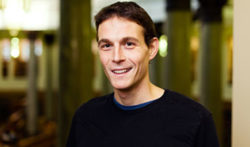
About me: I am an Associate Professor in the School of Philosophy, Religion and History of Science. My teaching covers two main areas: Political / ecological theology and religious studies; and continental philosophy. My research focus is the theological and philosophical dimensions of climate change and ecological activism. I am particularly interested in the legacy of Christian apocalyptic, utopian and eschatological belief for contemporary responses to ecological crisis (including extinction). I am leading two AHRC research projects which engage with artists, activists and scholars on extinction crisis: ‘Religion and Extinction’ and ‘Thinking Through Extinction’.
Interested in supervising: I am keen to supervise projects related to the beliefs, values, and narratives that underpin the way people make sense of the extinction crisis and respond (politically, socially, emotionally) to it. I’d welcome projects that are either predominantly philosophy (particularly continental / critical theory) or theology / religion focused, or a combination of the two. For instance, addressing how extinction draws upon beliefs about: time, life and death, lament and hope, creation and goodness, the human. I’m also interested in the ways these dovetail with literary, cultural, or social responses to extinction. More generally, I would welcome projects that examine extinction in relation to the following headings:
-
- Environmental philosophy and ethics.
- Religious, theological, or spiritual belief in public life.
- End-time belief (apocalypse, eschatology, utopia).
- Cultural and literary theories of death and life.
- Political activism and ecological crisis.
- Mourning, grief, and death rituals.
Get in touch: s.skrimshire@leeds.ac.uk
Caitlin Stobie
Lecturer in Creative Writing
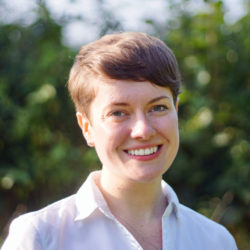
About me: I am an author of fiction, literary criticism and poetry. My creative work is informed by the relationship between human and nonhuman bodies, focusing on gender, environmental and medical issues in global contexts. Much of my writing to date explores bioethics, particularly reproductive health. I am the author of Thin Slices (Verve Poetry Press) and Abortion Ecologies in Southern African Fiction: Transforming Reproductive Agency (Bloomsbury Academic). Interested in supervising: I would be interested in supervising creative projects on topics including critical animal studies, ecopoetry/ecopoetics, planetary health, posthumanism, and decolonial approaches to extinction studies.
Get in touch: C.E.Stobie@leeds.ac.uk
Lorna Waddington
Lecturer in International History, School of History

About me: I am a lecturer in International History and Politics. I am currently working on two projects. The first project examines the British reactions to genocides in the Twentieth Century. An article entitled Britain and the Killings Fields of the Khmer Rouge’ is to be published with the Journal of Genocide Studies’. My second research area focuses on anthropogenic climate change and environmental violence as potential causal factors of genocides in the 21st Century. I also work very closely with various charities/NGOs, including Remembering Srebrenica, the Holocaust Education Trust and the Ishami Foundation.
Interested in supervising: I would be interested in supervising topics relating to:
- Anthropogenic climate change and mass violence
- Environmental violence
- Historical genocides resulting from the loss of land/famines/climate changes
Get in touch: l.l.waddington@leeds.ac.uk
Janet Watson
Professor, School of Languages, Cultures and Societies
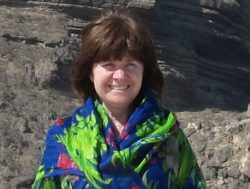
About me: I took up the Leadership Chair for Language@Leeds in Leeds in 2013, and was elected Fellow of the British Academy in 2013. I am co-director of the Centre for Endangered Languages, Cultures and Ecosystems at the University of Leeds. My main research interests lie in the community-driven documentation of Modern South Arabian languages.
Interested in supervising: I would be keen to supervise interdisciplinary topics on the relationship between threatened languages and cultures, particularly in southern Arabia with a focus on either threatened flora or marine species.
Get in touch: j.c.e.watson@leeds.ac.uk
Stephen Whitfield
Associate Professor in Climate Change and Food Security, School of Earth and Environment
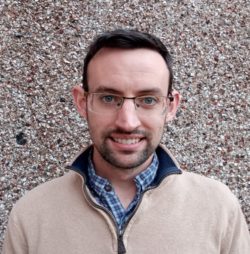
About me: I am an Associate Professor in Climate Change and Food Security and Associate Director of the Global Food and Environment Institute. My main research interests are in social and political dimensions of climate change impacts, resilience and transformations in agriculture and food systems.
Interested in supervising: I would be interested in supervising projects on climate change politics, resilience and limits to growth in food and agriculture systems, and the political and social aspects of resource competition, transformation and technological fixes within these systems.
Get in touch: s.whitfield@leeds.ac.uk
Paul Wignall
Professor of Palaeoenvironments, School of Earth and Environment
 I am a geologist/palaeontologist who has been working on mass extinctions for the past 30 years, especially the greatest crisis of all time at the end of the Permian (252 million years ago). This has lead me into research on proxies for oxygenation levels in the oceans, sea-level change and records of past temperatures. All the world’s major crises are linked with massive volcanism and rapid global warming and the cause-and-effect linkages of these phenomena with extinction losses forms a key part of my investigations.
I am a geologist/palaeontologist who has been working on mass extinctions for the past 30 years, especially the greatest crisis of all time at the end of the Permian (252 million years ago). This has lead me into research on proxies for oxygenation levels in the oceans, sea-level change and records of past temperatures. All the world’s major crises are linked with massive volcanism and rapid global warming and the cause-and-effect linkages of these phenomena with extinction losses forms a key part of my investigations.
Get in touch: p.b.wignall@leeds.ac.uk
Katy Wright
Lecturer in Sociology and Social Policy, School of Sociology and Social Policy
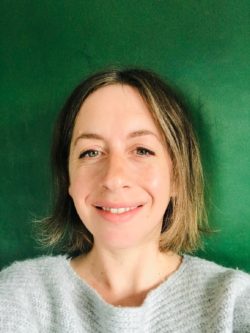
About me: I am a lecturer in the School of Sociology and Social Policy. I am interested in critical approaches to community resilience, and more broadly in issues relating to anticipating adverse futures and public engagement. I am currently writing a book on Community Resilience for Routledge (forthcoming 2021)
Interested in supervising: I am interested to supervise projects on resilience, preparation, and popular epistemologies of extinction, as well as projects examining collective responses to threats of extinction.
Get in touch: k.j.wright@leeds.ac.uk

